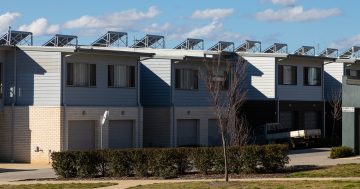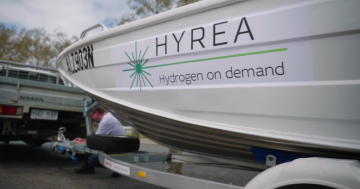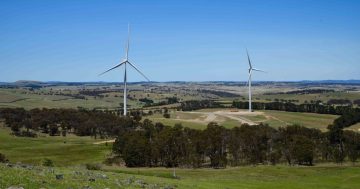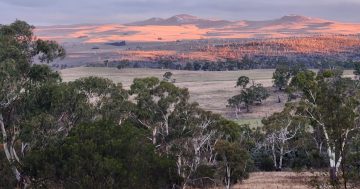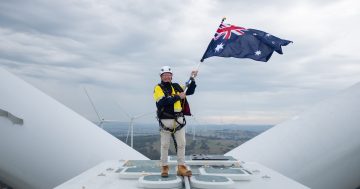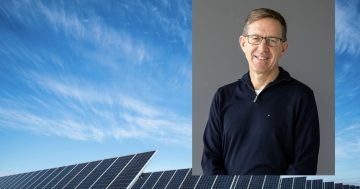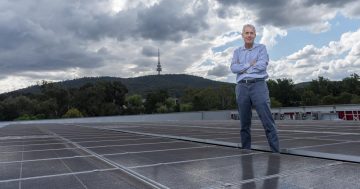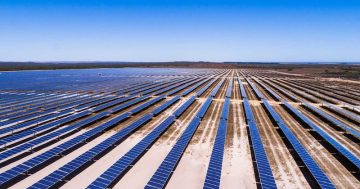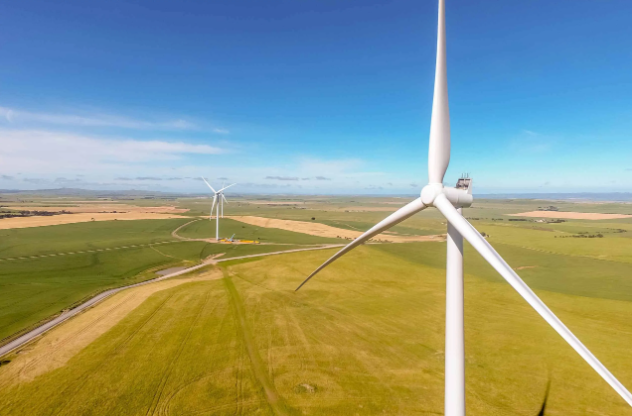
The ACT should buy even more renewable power like that generated at the Hornsdale Wind Farm, according to Professor Andrew Blakers. Photo: File.
The ACT should buy more renewable electricity than it needs, hold reverse auctions to upgrade household heating and offer substantial subsidies to accelerate the take-up of electric vehicles, according to ANU researcher Andrew Blakers.
The Director of the ANU Centre for Sustainable Energy Systems, Professor Blakers also poured cold water on what he called the hydrogen hype when giving evidence to the Legislative Assembly Inquiry into Renewable Energy Innovation in the ACT.
Professor Blakers, best known for co-inventing sliver solar cell technology, told the Standing Committee on Environment, Climate Change and Biodiversity that while the ACT was doing better than other states in reducing greenhouse emissions, it needed to go much faster to meet its goal of achieving net zero emissions by 2045.
He said the next steps were the transition to electric vehicles and electric space and water heating in buildings, homes and waste treatment.
“We need to move very quickly in respect of all three because there are long lag times,” he said.
Professor Blakers also believes the Government should aim for 80 per cent of houses to have rooftop solar by 2026.
He suggested the most effective way to further bring down emissions would be for the ACT to go far beyond its present 100 per cent renewably sourced electricity purchases.
“In fact, the most effective way in which people can contribute to removing greenhouse emission right at this moment is to carry on with the offset program for electricity and go to 200 per cent electricity by contracting more solar and wind farms,” he said.
“The reason for this is that it undermines the intransigence at the federal level in terms of supporting renewables, and because of the low cost of wind and solar it contributes to the continuation and expansion of the industry at very low locked-in prices for electricity for the ACT.”
Professor Blakers said this could also be a way to leverage private company capital as part of reverse auction deals to source co-funding from the Australian Research Council and ARENA to boost research and development projects at the ANU and the University of Canberra.
He said the reverse auction idea could also be applied to upgrading space and water heating in buildings and homes.
It would allow for upgrading to energy efficient electric heat pumps on a mass scale and the excellent security of private homes also provided the means to secure finance to pay for it.
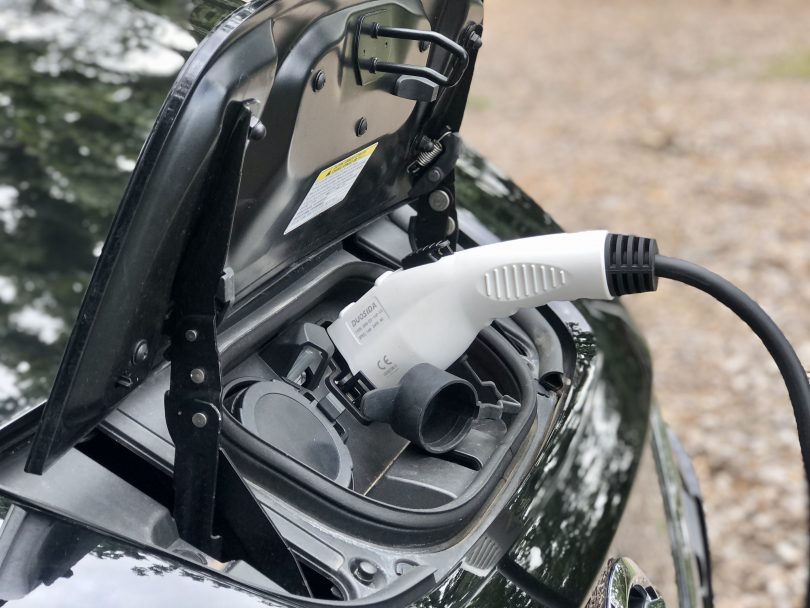
A parliamentary standing committee has been told that bigger subsidies are needed to accelerate EV uptake. Photo: File.
The cost could be recovered when the home is sold or through the rates system – a version of which the City of Melbourne is operating.
Professor Blakers said this would also get around the resistance of landlords to put up the capital to upgrade a property because both landlord and tenant would benefit from a more valuable property and lower energy bills.
“Because you are not doing one by one you can have a fairly robust legal and economic framework,” he said.
“There are many ways to do it. But the principle is fantastic security on the house and you can radically upgrade performance which increases comfort and reduces energy bills on a mass scale.”
Professor Blakers told the committee that the ACT had to bite the bullet and provide substantial subsidies to people who wanted to buy an electric vehicle, beyond the current free rego for two years.
He said the Government could increase overall registration fees to raise a pool of money to divide between EV purchasers.
“The obvious way to do this is to add $30 to everyone’s rego fee and all of that money would raise $9 million or $10 million per year and that’s simply divided by electric vehicle sales in the ACT,” he said.
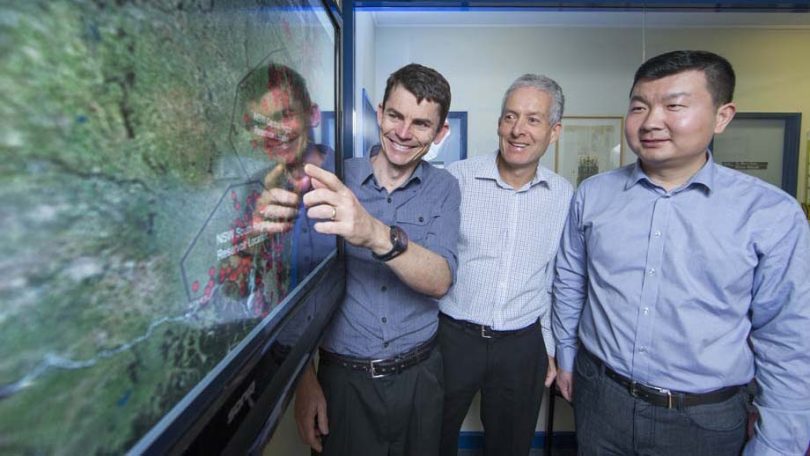
Professor Andrew Blakers, centre, with Dr Matt Stocks and PhD candidate Bin Lu from the ANU College of Engineering and Computer Science at the ANU. Photo: ANU.
The subsidy would wind down as sales went up and rego could be scaled according to the value of a vehicle so those less well-off were not disadvantaged.
“This is a way of bridging the gap between the capital cost of EVs and the capital cost of the equivalent ordinary vehicle,” he said.
Professor Blakers poured scorn on the idea that hydrogen would play a big role in the zero-emissions future saying it was far too inefficient, and hydrogen fuel cell vehicles would never be able to compete with electric vehicles.
“The round trip efficiency to go from solar and wind electricity through an electrolyser to make hydrogen then back to electricity through a fuel cell is about 25 per cent, 30 per cent tops,” he told the committee.
“To put the same electricity through a pumped hydro or battery, the efficiency is 80 to 90 per cent, so why on earth would you use hydrogen as an energy store. It makes zero sense.”
Food for thought for the ACT Government which is currently trialling hydrogen vehicles through Australia’s first refuelling station as part of an arrangement with ActewAGL and Hyundai.
Also something for the Government to ponder is Professors Blakers support for waste incineration to cut dangerous methane emissions from landfill, something it ruled out when such a plant was proposed in Fyshwick.












